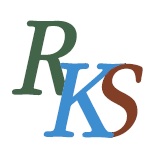Research on the Development of a User-oriented Korean History Site: Focusing on Analysis of Site Situations and Suggesting New Directions for Development
길태숙 (상명대학교)
Abstract
This article examines the problems and limits of current history-related sites by analyzing Korean domestic sites dealing with history, surveying both Koreans and foreigners who use them, then analyzes users’ tendencies and expectations on the basis of the survey, and suggests new directions for development of user-oriented history sites. The user-oriented history site,which is opened in conformity with the requirements of the general public,is expected to raise their usage rates and satisfaction when they log on to the site, and furthermore be a stepping stone on which cultural content like art,film, games, and characters will be created.
- keywords
- Korean History Site, A user-oriented Korean History Site Model, Mutual Communication, Historical Content, Interactivity
참고문헌
Kim, Chang-Il. 2009. Hangukminsokbaekgwasajeonui pyeonchan banghyanggwa jeonmang (Directions for compilation and future prospects of the Encyclopedia of Korean Folk). Silcheonminsokhakyungu 13: 211-248.
Kim, Hyun-Joo. 2005. Chodeung yeoksa hakseupeul wihan website gaebal hyeonwhang (Websites for elementary history classrooms). Journal of the Korean Association of History Education 1: 271-295.
Kwon, Tae Kyung, 2003. Interneteul tonghan yeoksa ihaewa yeoksa gyoyuk (History through the Internet – understanding and education). Journal of Student Guidance No. 7: 47-66.
Lee, Nam-Hee. 2003. Inmunhakgwa jisikjeongbowha: jisikjeongbo jawan kwanlibeopgwa hanguk yeoksajeongbo tonghap siseutemeul jungsimeuro (Humanities and knowledge information: focusing on the law concerned with knowledge information resources and Korean history information). Humancontent 1: 117-130.
Moon, Byung Chae, and Hyun Wook Park. 2003. GIS gibanui munwha database guchuk bangan yeongu (A Study of the model for constructing a cultural database system). The Journal of GIS Association of Korea 1(2): 185-201.
Oh, Pill Woo, Duk Hui Koo, Yung Sik Kim, and Tae Young Kim. 1999. VRMLeul iyonhhan waep giban gasang hyeonsil yeoksa hakseup koseuwaeeoui seolgye mit guhyeon (Design and implementation of web - based courseware for virtual history learning using VRML) Journal of Korean Association of Computer Education 2(1): 114- 123.
Park Soon-Joon. 2004. Yeoksagwa meoltimidieo gyosuhakseupjaryo gaebal: junhseyureopui seongdanggwa seongchae tambang (Development of Multimedia Teaching and Learning Sources for Historical Education: In Search of Cathedrals and Castles in Medieval Europe). Humancontent 4: 144-171.
Park, Min-jeong, and, Chong-Kyung Lee. 2000. Interneteul whalyonghan yeosasueupmohyeong yeongu (How to use the Internet in history class-A case of world history class in middle school), Journal of Research Institute of Curriculum Instruction 4(1): 75-94.
Ryu, In-Young, Eun-Young Ahn, and Tae-Won Kim. 2009. Gasang hyeonsileul iyonghan yeoksa hakseup kondaencheuui guhyeon (Implementation of historical educational content using virtual reality). Journal of Digital Contents Society 9(8): 32-40.
Ryu, Jun-Beom. 2008. Yeoksajaryo jeonsanhwawa saryo bipan (Computerizing historical materials and critiquing historical documents). Critical Studies on Modern Korean History 20: 375-395
Culture Content Site(http://www.culturecontent.com/)
Cyber Chosun Dynasty(http://www.1392.org/)
Digital History Reader(DHR) (http://www.dhr.history.vt.edu/)
EncyKorea (http://www.encykorea.com/EncyKorea.htm)
HISTOPIA(http://www.histopia.net/zbxe/home)
History and Sociology Exploration by Haesuk Kim(http://khskk7.com.ne.kr/)
History Education by Changho Lee ( http://chang256.new21.net)
History Love by Kunho Park(http://guno.pe.kr/)
History Special(http://www.kbs.co.kr/history/collect.shtml)
History Stories by Golmal (http://history.new21.net/history.php3)
Integrated data System for Korea’s Historic Figures (http://people.aks.ac.kr)
Korea Epigraph Synthesis Image Information System(http://gsm.nricp.go.kr)
Korean History Database (http://db.history.go.kr)
Korean History Dictionary(http://yoksa.aks.ac.kr/jsp/cc/Directory.jsp?gb=1)
Korean History On-line(http://www.koreanhistory.or.kr/)
Korean History & Culture Research Database (http://www.excavation.co.kr/)
Korea National Heritage Online (http://www.heritage.go.kr)
Korea 100-year History Picture Museum (http://www.nojum.co.kr/)
Life History Museum(http://life.ugyo.net)
Modern Korea-Japan Diplomatic Materials (http://siminlib.koreanhistory.or.kr)
Modern Korean Textbook Site(http://home.knue.ac.kr/~history)
The Multimedia Jeju Customs Tourism Unabridged(http://jejuro.go.kr/)
Museum Portal of Korea (http://www.korea-museum.go.kr)
National Archives of Korea(http://busan.archives.go.kr/)
Northeast Asian History Foundation(http://www.historyfoundation.kr/)
Sociology Class by Yongho Ko (http://very.good.to/)
Seoul City Culture Information Network, Seoul History Compilation Committee (http://history.seoul.go.kr/)
The Annals of Choson Dynasty(http://sillok.history.go.kr)
The Daily Records of Royal Secretariat of Chosun Dynasty(http://sjw.history.go.kr)
The Electronic Encyclopedia of Korean Grand Culture (http://www.grandculture.net/main/main.asp)
The History of Korean Independence Movement Online (http://search.i815.or.kr)
The Merits Electronic History Material Site (http://e-gonghun.mpva.go.kr)
The Oral History of Korean Arts (http://oralhistory.arko.or.kr/oral/main.asp)
The Research Group for the People without History in the 20th Century (http://www.minjung20.org/main/)
Ugyo Net (http://www.ugyo.net)
Women’s History Knowledge System(http://www.womenshistory.re.kr:7070)
- 다운로드 수
- 조회수
- 0KCI 피인용수
- 0WOS 피인용수


